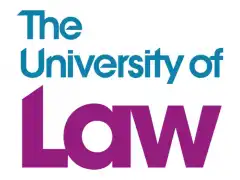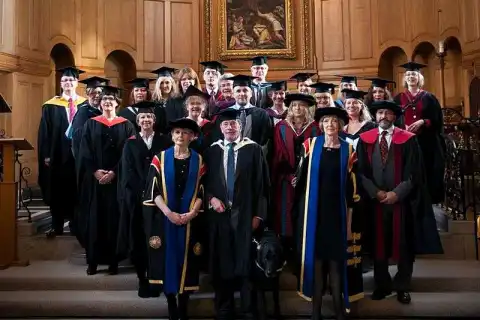Master of Science - Human Resources with Employment Law
- 1 year
- Duration
- 18,500 GBP
- Price
- Rolling admission
- Start
- Rolling admission
- Deadline
- Master
- Degree
- Mixed
- Format
- Multiple Locations / United Kingdom
- Location
- ULaw - The University of Law
- School
Program description
Our Master’s in Human Resources with Employment Law programme enables professionals to specialise in the legal aspects of human resource management and employment. With modules focusing on Global Business Strategy and Strategic Human Resource Management, Employment Law, Mediation and Dispute Resolution, you’ll develop a broad comprehension of the most important concepts in people management in both a legal and global context.
Program structure
Main modules
- Global Business Strategy (15 credits)
- Innovation Management in a Digital Age (15 credits)
- Success Through Business Ethics (15 credits)
- Leading, & Developing People (15 credits)
- Strategic Human Resource Management (15 credits)
- Employment Law (30 credits)
- Mediation and Alternative Dispute esolution (30 credits)
- Business Project (45 credits)
- Professional Development (non-credit bearing)
Price
Tuition fees for international students per year:
- 18,500 GBP (London)
- 17,000 GBP (Non-London)
Requirements for applicants
- 2:2 or above from a UK Bachelor’s degree, or equivalent qualification(s)
English language requirements for applicants whose first language is not English
- IELTS score required: 6.5 overall (at least 5.5 in each component)
- The University of Law English Test (ULET)*: 6.5 overall (at least 5.5 in each component)
- TOEFL iBT (not ‘MyBest Scores’): 79 (Listening 11, Speaking 17, Reading 12, Writing 20)
- Pearson PTE Academic: 72 overall (at least 59 in each component)
- LanguageCert ESOL (both papers must be sat within 3 months): B2 Written paper: overall 101 (min 33 in R/L/W); B2 Spoken paper: min 33/50
- Trinity ISE : ISE II: Three merits and one distinction
- Cambridge FCE/CAE/CPE (First, Advanced, Proficiency): 176 overall (at least 162 in each component)
- Cambridge IGCSE syllabus 0500, 0510, 0511, 0522, 0900, 0991:1st Language: C; 2nd Language: B
- International Baccalaureate : 4
- Functional Skills: Pass
- Trinity ESOL for Life Skills: Pass
*The University of Law English Test (ULET) was developed to evaluate your level of English for undergraduate or graduate education. Our University will consider it as evidence of your proficiency in English. Additionally, it complies with the conditions for a UK visa for immigration (UKVI).
About the university

The University of Law is the largest law school in the United Kingdom and was formed in 1962 as The College of Law of England and Wales. It offers law degrees, specialized legal training, and continuing professional development courses for British barristers and lawyers. Its beginnings can be found around 1876.
Prior to receiving university status in 2012, the College of Law's educational and training business was divided off and incorporated as a private limited company. The College of Law had been established by royal charter as a charity in 1975. The College of Law Limited and The University of Law Limited were created from this. The college was given the authority to offer degrees in 2006. When it was given university status in 2012, it changed its name to The University of Law (ULaw) and became the first for-profit educational institution in the UK.
The university has nine campuses in the UK, located in Birmingham, Bristol, Chester, Guildford, Leeds, Manchester, Nottingham, and Sheffield, in addition to an overseas campus in Hong Kong.
All of our courses, from our undergraduate law degrees to our varied range of business courses and postgraduate programmes, are created using a special, varied, and innovative learning approach that has been shown to produce independent professionals capable of competing in the quickly changing professional world. Our courses are created to prepare you for the real-life difficulties of the working world with a focus on developing abilities in problem-solving, evaluating arguments, critical thinking, and commercial awareness.
Read more about The University of Law (ULaw), United Kingdom





